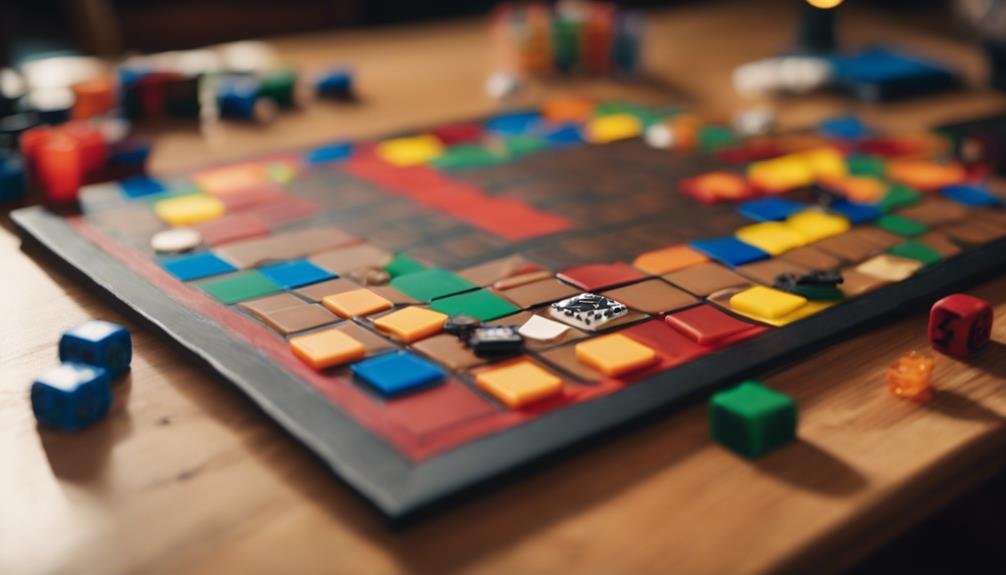Memory games have long been recognized as a fun and effective way to enhance cognitive abilities, improve concentration, and boost memory retention. Whether you’re using them to keep your mind sharp, help children develop critical thinking skills, or assist in recovery from cognitive decline, memory games can be a valuable tool. However, one of the most common questions is: how long should you play memory games daily to reap the benefits without overdoing it? This article will explore the optimal duration for playing memory games daily, considering various factors such as age, goals, and individual needs.
Key Takeaways
- Daily Duration: Playing memory games for 15-60 minutes daily is generally effective, with the exact duration tailored to your age, goals, and type of game.
- Cognitive Benefits: Regular engagement in memory games can enhance short-term and long-term memory, improve concentration, and boost problem-solving skills.
- Consideration of Age: Younger children should play for shorter periods (15-30 minutes), while teens, adults, and seniors can handle longer sessions (30-60 minutes), depending on cognitive capacity and attention span.
- Avoiding Overexertion: Signs of mental fatigue, frustration, or decreased enjoyment may indicate that it is time to reduce playtime or take breaks to prevent burnout.
The Cognitive Benefits of Memory Games
Memory games challenge the brain to retain and recall information, strengthening both short-term and long-term memory. These games often require players to remember sequences, patterns, or details, exercising the brain’s ability to store and retrieve information.
Short-Term Memory: Games like matching pairs or sequence repetition directly target short-term memory by requiring players to remember information over short periods. Regular practice can improve recall of recent events.
Long-Term Memory: Some memory games also challenge long-term memory, especially recalling facts, figures, or strategies learned over time. This helps reinforce neural connections, making retrieving information stored in long-term memory easier.
Improving Concentration and Focus
Memory games require sustained attention and focus, enhancing concentration over time. By regularly engaging in activities that demand full attention, players train their brains to filter out distractions and maintain focus on the tasks at hand.
Sustained Attention: Games that involve finding differences between images, solving puzzles, or memorizing sequences require continuous focus, helping to improve sustained attention.
Selective Attention: Some memory games require players to focus on specific details while ignoring irrelevant information, thereby improving selective attention. This skill is particularly useful in everyday life, where distractions are common.
Enhancing Cognitive Flexibility and Problem-Solving
Many memory games require players to think on their feet, adapt to new challenges, and change strategies when necessary. This enhances cognitive flexibility, a crucial problem-solving skill, and the ability to adapt to new situations.
Cognitive Flexibility: Games involving pattern recognition, strategy changes, or multitasking can enhance cognitive flexibility by encouraging the brain to shift between tasks or thought processes efficiently.
Problem-Solving: Memory games often present puzzles or challenges that require logical thinking and problem-solving skills. Regular engagement in such games can improve one’s ability to think critically and solve problems effectively.
Factors to Consider When Determining the Optimal Duration
While the benefits of memory games are well-established, the time spent playing each day can vary depending on several factors. Understanding these factors will help you determine the optimal duration for daily play.
Age and Developmental Stage
The time spent on memory games should be tailored to the player’s age and developmental stage. Different age groups have varying cognitive capacities and attention spans, which should be considered when determining playtime.
Children: For children, especially younger ones, attention spans are shorter, and the brain is still developing. It’s generally recommended that children play memory games for shorter periods, such as 15-30 minutes per day. This duration is sufficient to stimulate cognitive development without causing fatigue or boredom.
Teens and Adults: Teenagers and adults can typically handle longer play sessions due to their more developed cognitive abilities and longer attention spans. A duration of 30-60 minutes per day is usually effective for this age group. This allows enough time to engage in various memory games, challenging different cognitive functions.
Seniors: Memory games can be particularly beneficial for older adults, especially those looking to maintain cognitive function or address cognitive decline. However, it’s essential to avoid overexertion. A balanced approach would involve 20-45 minutes of memory games daily, allowing for mental stimulation without overwhelming the player.
Goals and Objectives
The duration of memory gameplay should align with the individual’s goals. Whether you’re playing for cognitive enhancement, entertainment, or therapeutic purposes, your goals will influence how long you should spend on these activities each day.
Cognitive Enhancement: If the primary goal is to enhance cognitive abilities such as memory, focus, or problem-solving, consistent daily practice is key. For cognitive enhancement, aim for 30-45 minutes daily, spread across different types of memory games to target various mental functions.
Therapeutic Purposes: For individuals using memory games as part of a therapeutic program (e.g., recovering from brain injury or managing cognitive decline), the duration should be guided by a healthcare professional. In many cases, shorter, more frequent sessions of 15-30 minutes are recommended to avoid mental fatigue while promoting recovery.
Entertainment and Relaxation: The duration can be more flexible if playing memory games is primarily for entertainment or relaxation. Playing for 20-40 minutes daily can provide enjoyment and light cognitive exercise without leading to burnout.
Type of Memory Game
Different memory games place varying levels of demand on the brain. The type of game being played should influence how long you engage in it daily.
Challenging Games: Games that require intense concentration, such as chess, complex puzzles, or strategy-based games, can be mentally taxing. To avoid cognitive overload, it’s advisable to limit playtime to 20-30 minutes per session for these types of games.
Light and Fun Games: Simpler games like matching pairs or word search puzzles can be played longer without causing significant mental strain. 30-60 minutes can be suitable for these types of games.
Variety and Balance: Incorporating a variety of memory games into your daily routine can prevent mental fatigue and keep your brain engaged. For example, you might spend 15 minutes on a challenging puzzle and then switch to a more relaxing game for another 15-20 minutes.
Signs of Overdoing It
While memory games are beneficial, it’s important to recognize when you might be playing too much. Overexertion can lead to mental fatigue, stress, and even a decline in cognitive performance. Here are some signs that you may be overdoing it:
Mental Fatigue: If you start to feel mentally exhausted, struggle to concentrate, or find that your performance is declining, it may be a sign that you’ve played too long.
Frustration and Stress: While a certain level of challenge is beneficial, feeling overly frustrated or stressed during or after playing memory games indicates it’s time to take a break.
Decreased Enjoyment: If memory games feel like a chore rather than a fun or stimulating activity, you may spend too much time on them. It’s essential to keep the experience enjoyable to maintain motivation and engagement.
Physical Symptoms: Symptoms such as headaches, eye strain, or difficulty sleeping can also indicate that you spend too much time on mentally demanding activities, including memory games.
Tips for Incorporating Memory Games into Your Daily Routine
To maximize the benefits of memory games without overdoing it, consider the following tips:
Set a Daily Limit: Decide in advance how much time you’ll spend on memory games each day. This helps prevent overexertion and ensures that you’re playing consistently without burnout.
Mix-Up Game Types: Vary the types of memory games you play to keep things interesting and to challenge different cognitive skills. For example, alternate between visual memory games, puzzles, and strategic games.
Take Breaks: Take short breaks if you’re playing memory games for an extended period. This can help refresh your mind and prevent fatigue.
Listen to Your Body and Mind: Remember how you feel during and after playing memory games. Adjust your playtime accordingly if you notice signs of fatigue or decreased enjoyment.
Incorporate Other Activities: Balance your cognitive exercise with physical activity, social interaction, and relaxation. A well-rounded routine contributes to overall brain health and well-being.
Conclusion
Memory games are valuable for enhancing cognitive abilities, improving concentration, and maintaining mental sharpness. The optimal duration for playing memory games each day varies depending on factors such as age, goals, and the type of game. Generally, 15-60 minutes per day is reasonable, with adjustments made based on individual needs and preferences.
It’s important to approach memory games with balance and mindfulness. While regular engagement is beneficial, overexertion can lead to mental fatigue and diminish the positive effects. By setting a daily limit, varying game types, and listening to your body, you can enjoy the cognitive benefits of memory games while keeping the experience enjoyable and sustainable. Ultimately, the key is consistency and enjoyment—incorporating memory games into your daily routine to enhance fitness without causing stress or burnout.
FAQs
How long should I play memory games each day for cognitive benefits?
The ideal duration for playing memory games daily can vary depending on individual preferences, cognitive goals, and the game being played. However, here are some general guidelines:
- 20 to 30 Minutes Daily:
- Recommendation: Playing memory games for about 20 to 30 minutes daily is often sufficient to stimulate your brain and improve cognitive functions such as memory, attention, and problem-solving skills.
- Reason: This duration provides enough time to engage with the game and challenge your brain without leading to mental fatigue.
- Shorter, More Frequent Sessions:
- Recommendation: Instead of one long session, consider breaking up your playtime into shorter sessions (e.g., 10 minutes twice daily). This can help maintain focus and prevent burnout while still providing cognitive benefits.
- Reason: Multiple short sessions can reinforce learning and memory consolidation more effectively than a single extended session.
- Consistency Over Time:
- Recommendation: Consistency is the key to improving cognitive skills with memory games. Aim to play regularly, even if it’s just for a few minutes each day, rather than sporadically for longer periods.
- Reason: Regular brain training can help strengthen neural connections and improve cognitive functions over time.
Can playing memory games for too long be harmful?
While memory games are generally beneficial, overplaying or spending excessive time on them can have downsides:
- Mental Fatigue:
- Concern: Playing memory games for extended periods without breaks can lead to mental fatigue, reducing your ability to concentrate and process information effectively.
- Solution: Take regular breaks and avoid marathon sessions. Listen to your body and mind—if you start feeling tired or frustrated, it’s time to take a break.
- Diminishing Returns:
- Concern: After a certain point, the cognitive benefits of playing memory games may plateau, meaning that additional playing time won’t necessarily lead to further improvements.
- Solution: Stick to the recommended 20-30 minutes daily, and consider incorporating various brain exercises and activities to keep your brain engaged and challenged.
- Balance with Other Activities:
- Concern: Spending too much time on memory games might reduce the time available for other important activities, such as physical exercise, social interaction, and other forms of cognitive stimulation.
- Solution: Ensure that playing memory games is part of a balanced routine that includes physical activity, socializing, and diverse mental challenges.
What are the best practices for getting the most out of memory games?
To maximize the cognitive benefits of memory games, consider these best practices:
- Choose the Right Games:
- Practice: Select memory games that challenge you at an appropriate level. Games that are too easy won’t provide much cognitive benefit, while too difficult games can lead to frustration.
- Incorporate Variety:
- Practice: Mix up your brain training routine by playing different types of memory games. This can prevent boredom and engage different cognitive skills, such as working memory, visual memory, and verbal memory.
- Set Goals and Track Progress:
- Practice: Set specific cognitive goals, such as improving your score or reaction time, and track your progress over time. This can help you stay motivated and monitor your improvement.
- Combine with Other Cognitive Activities:
- Practice: Complement memory games with other brain-boosting activities like reading, puzzles, learning a new skill, or practicing mindfulness. A holistic approach can provide broader cognitive benefits.
- Stay Consistent:
- Practice: Regularity is key. Try to incorporate memory games into your daily routine, even just for a few minutes. Consistency over time leads to better cognitive improvements.
By playing memory games for 20-30 minutes a day and following best practices, you can effectively enhance your cognitive skills without overextending yourself. Remember to keep your brain training balanced with other healthy habits and activities.




